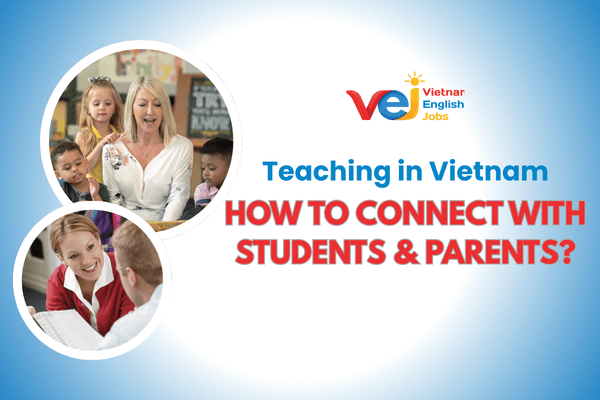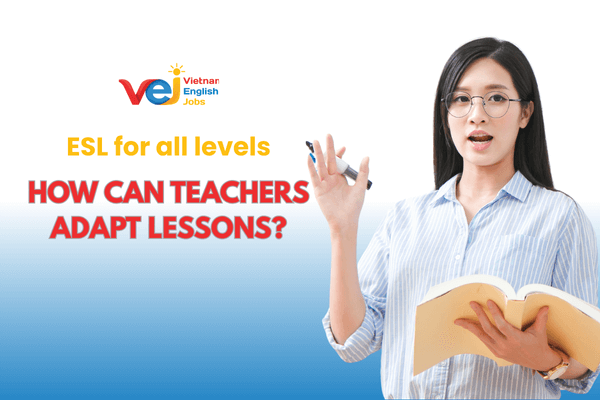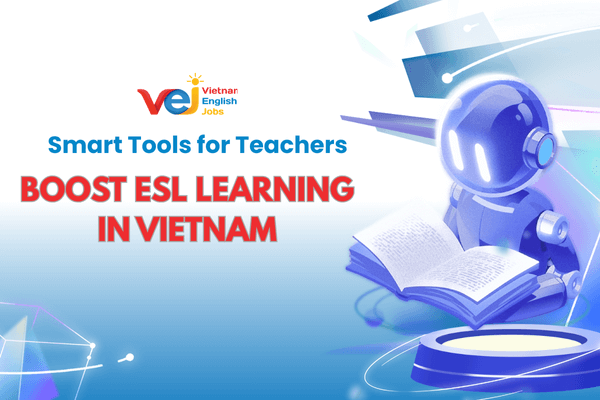Teaching Young Learners vs. Adults: Key Differences in Vietnam
Teaching young learners vs. adults in Vietnam comes with significant differences. Understanding these differences helps teachers adapt their methods, manage classrooms more effectively, and achieve better results.
In this article, we’ll explore the key differences between teaching young learners and adults in Vietnam, along with tips to succeed in both settings.

1. Motivation and Learning Goals
- Young Learners (Ages 5–17): Often study English because their parents or schools require it. Their motivation comes from games, fun, and rewards.
- Adults (18+): Usually learn English for career advancement, university admission, or overseas opportunities. They are goal-oriented and self-motivated.
* Teaching Tip: Use fun, interactive activities for kids, but connect lessons to real-life goals for adults.
2. Classroom Management
- Young Learners: Classes can be large (30–50 students in public schools). Teachers must manage energy, attention spans, and behavior.
- Adults: Typically smaller classes (5–15 learners). Students are disciplined and respectful, but may hesitate to speak due to fear of mistakes.
* Teaching Tip: For kids, set clear rules and routines. For adults, create a safe, encouraging space for speaking practice.
3. Teaching Methods and Activities
- Young Learners: Learn best through songs, games, flashcards, and movement-based activities. Lessons should change pace every 10–15 minutes to keep attention.
- Adults: Prefer discussions, debates, role-plays, and professional writing tasks. They value structured lessons and practical communication.
* Teaching Tip: Adapt materials: visuals and games for children, real-world scenarios and critical thinking tasks for adults.
4. Language Skills Focus
- Young Learners: Focus on basic vocabulary, simple grammar, listening, and speaking. Reading and writing are introduced gradually.
- Adults: Require advanced grammar, academic or business writing, and strong speaking fluency. Listening often includes real-life contexts like meetings or exams (IELTS, TOEIC).
* Teaching Tip: Keep language simple and repetitive for kids; use authentic materials (articles, podcasts, workplace simulations) for adults.
5. Cultural Expectations in Vietnam
- Young Learners: Parents and schools expect foreign teachers to make classes fun while also building solid English foundations. Teachers are seen as role models.
- Adults: Expect professionalism and practical outcomes. Many adults pay for their own courses, so they want clear progress.
* Teaching Tip: Balance fun with structure for kids, and focus on results and real-life application for adults.
6. Assessment and Feedback
- Young Learners: Grading is often less strict; feedback is simple and encouraging. Progress is measured through participation and improvement.
- Adults: Expect detailed, constructive feedback. They want to know their exact strengths, weaknesses, and how to improve.
* Teaching Tip: Use positive reinforcement with kids; use targeted feedback and error correction with adults.
Teaching English in Vietnam offers opportunities to work with both young learners and adults, but success requires different approaches. Children learn through fun, energy, and interaction, while adults value structure, feedback, and real-world application. Foreign teachers who adapt their methods to each age group not only improve classroom results but also build stronger connections with their students. By understanding these key differences, teachers can thrive in Vietnam’s diverse and dynamic ESL environment.

















